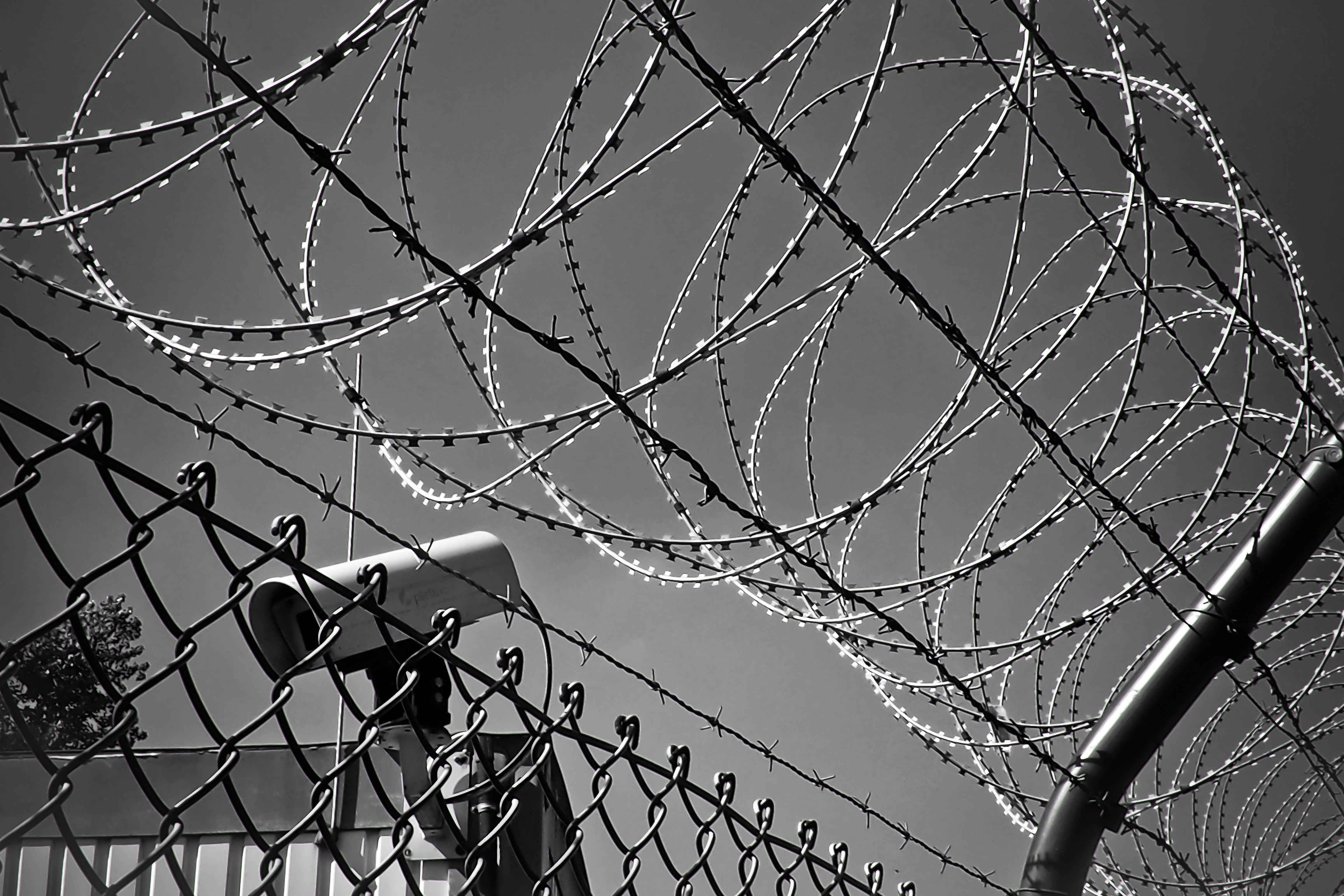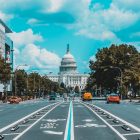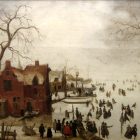Writing From Exile

Lately, I’ve been considering what it means to write from exile. But it hasn’t been until very recently that I’ve seriously considered what it might mean to write from exile within my own country.
In the wake of Trump’s proposed executive order to strip citizenship from Americans born on US soil to non-citizens and unauthorized immigrants, it’s increasingly apparent that Trump is coming after all Latinx people. All of us, whatever he says about targeting only asylum seekers or the undocumented migrant or fraudulent birth-certificate holders or the so-called “bad hombres.” It is all of us he needs to disappear. Though of course, we’ve known this for many years. But still—it is one thing to know it and something completely different to see it become institutionalized.
One might look at extant institutionalized oppression and say, Well, look at undocumented writers. They write from exile within their own country every day. Why should you, with all of your privilege derived from your citizenship, complain?
But this is the exact logic (let’s call it uncritical wokeness) that underscores my point. It is the logic of the oppressor, the logic of the oppressor’s institutions, which is zero-sum, comparative, tending toward the oppressor’s ideological drift toward the aims of their institution because of the parameters set by the institution. Those parameters of conversation—always zero sum to pit natural allies against each other—detract from the heart of the matter so that grounded conversations rooted in justice never open up. Within the parameters of that logic, it might never occur to a person, for example, that it is indeed wrong that undocumented people might have to write from the shadows in the first place. That it is wrong that Latinx people born on US soil might have to eventually do that too for no reason other than being first generation Latinx. Or that both ideas can resonate with each other and speak toward a common justice.
This zero-sum is how they have divided us and helped us create the walls that we’ve built even within our own communities that stymied a common conversation. To this end, I wonder how many walls in our communities have us living in different realities, living out different versions of our own post-truth. There’s some evidence to this insomuch as we discovered in the wake of the 2016 elections that we were indeed all living in different Americas. Not the one that we thought we assumed everyone else lived in. I think these walls are also the reason we’re having trouble now reacting appropriately to the fascism that is taking root in America. While we might pay lip-service to the idea of community, to speaking through those walls, it’s worth asking what we do to actually cultivate that community—which is another word for tearing those walls down.
***
To ground ourselves: Trump’s proposed executive order to strip citizenship from Americans born on US soil to non-citizens and unauthorized immigrants is unconstitutional and otherwise legally unsound as far as presidential powers go. By all expert analysis, such a unilateral move on Trump’s behalf would be instantly challenged in court and sure to fail given that birthright citizenship is guaranteed by the first line of the Fourteenth Amendment: “All persons born or naturalized in the United States and subject to the jurisdiction thereof are citizens of the United States and of the State wherein they reside.”
As one of the Reconstruction Amendments, there was a literal civil war fought over the idea considered in this line alone, a line that overturned Dred Scott and guaranteed African-Americans citizenship regardless of whether their parents were slaves or not. The fight to ratify the Fourteenth Amendment in 1868 was a bitterly contested issue, especially with former Confederate states in the South who were forced to ratify it in exchange for representation in Congress post-Civil War. Bitterly contested exactly because African-Americans were afforded rights they were previously not guaranteed, especially those outlined in the Due Process clause of the Fourteenth Amendment: “life, liberty, or property, without due process of law.”
Simply put: whites could no longer do to blacks what they once used to do to them. And in the wake of Trump’s proposed executive order to strip citizenship of American Latinx citizens by birthright, the next logical questions are: What does Trump want to do with us? What does he have in mind that he needs to take our citizenship—and all rights guaranteed under it—away?
Regarding writing in exile within one’s own country, I think I know the things that Baldwin (my favorite writer of all time) might say about this.
In Notes of a Native Son he might facetiously ask, “Exiled from which America?” But in The Fire Next Time, he might invoke W.E.B. Du Bois’ double-consciousness and might say something to the effect of, “You should know you were only really a part of it insomuch as you could see out of your own eyes and perceive, at the same time, how they see you and not succumb to that vision.”
I always loved how Baldwin took Du Bois’ problem of double-consciousness and complicated it to talk about using it as a kind of sword and shield, a terrible suit of armor that informs social navigability to the ends of survival in the American fabric. Baldwin talks about double-consciousness as a way in which you can essentialize America (and your position in it), and use it to subvert the social order. A kind of liberation praxis at best. At worst a complicated set of instructions to the ends of this is how you don’t die in America.
Baldwin explored such ideas in “Equal in Paris,” for example. But that shield and sword is also a reminder of one’s inescapable Americanness. There is the problem of defining oneself in reaction to something that is trying to extinguish you. And this for Baldwin was largely the refuge of writing from abroad. Not necessarily in exile but not necessarily not in exile either.
In an interview with The Paris Review in the Spring of 1984, Baldwin said to Jordan Elgrably, the interviewer, that, “It wasn’t so much a matter of choosing France—it was a matter of getting out of America. I didn’t know what was going to happen to me in France but I knew what was going to happen to me in New York. If I had stayed there, I would have gone under, like my friend on the George Washington Bridge.” A reference to his friend who had died by suicide shortly before Baldwin left to Paris.
But even in Paris, the black shield and sword in the context of the French social fabric becomes a painful reminder of Baldwin’s own limits outside of America. And it is in Paris that he realizes that come hell or high water, an American is an American is an American wherever they’re at in the world. Even Baldwin says so much in “A Question of Identity.”
But what does one do when the American fabric fundamentally changes? When the trajectory goes astray and you can’t intuit its next move? Worse, what happens when you can intuit that stray trajectory? When you suspect that instead of overreacting you are massively underreacting?
To this end, I wonder if this apocalypse that I’m feeling isn’t so much a question of citizenship (though that too), but rather a question of loss of that social navigability within an era eclipsed by the double-whammy of post-truth and unbridled bigotry—let’s call it fascism.
It’s one thing to see how they see you and not succumb to it. It’s a completely separate and darker thing to see how they see you and then have to conform to it in the name of the law. To have to see how they see you because their version of the truth demands your participation, demands your citizenship, demands your body grease the wheels of the brand of fascism we all feared might arrive with Trump’s inauguration. This new era demands to have you believe or risk being destroyed via pipe bomb or bullets or white supremacist violence. These demands are very real. And now, very institutionalized.
Not to be alarmist, but the ingredients are all there: detention camps à la Tornillo dotting the U.S. Borderlands, 5,200+ troops currently being deployed there to “assist” in border missions with CBP (given the okay by Trump to fire at will), the systematic terrorizing and detention of individuals in Latinx communities (including Latinx-Americans) by ICE, the roving checkpoints in which anyone can be detained within the 100-mile border zone, the Attorney General’s systematic splitting apart of families and routine rewriting of immigration case law that dehumanizes Latinx people, especially Latinx women. All of it an effort to terrorize citizens and non-citizens alike.
As we look at the atrocities that have been committed in the last year alone against non-American Latinx people in the name of the US Government and its laws, it is without a doubt in Trump’s mind to perpetrate those unhinged fates on Americans too for no reason other than race.
After all, race had everything to do with many of Trump’s previous explorations into executive power (though not necessarily through executive order) including the so-called Muslim ban, the accusation of American born Latinxs in the US of counterfeiting fraudulent birth certificates, and an executive order, “Enhancing Public Safety in the Interior of the United States,” which essentially stripped sanctuary cities of federal grant money, created a publicly available list of crimes committed by undocumented people, and ordered the hiring of more than 10,000 border patrol agents.
In seeking to strip birthright citizenship from the children of non-citizens and unauthorized immigrants, the Trump administration seeks to fully conflate Latinx with illegal, a large and significant stride toward the kind of fascism we’ve long feared and suspected of the Trump administration whose institutional mission seems to be to create a kind of de facto second class Latinx citizen in the American fabric. This revelation on citizenship, eerily enough, came just days after the murder of eleven Jews in Pittsburgh, killed by a gunman who appears to have been tipped over the edge by an anti-Semitic conspiracy theory—stoked by Trump—that falsely accused George Soros of funding the migrant caravan moving north toward the US-Mexico border.
Minutes before the shooting, the gunman posted his last post to the hate site Gab referencing HIAS, a Jewish refugee resettlement non-profit that historically resettled many Jews fleeing Nazi Germany: “HIAS likes to bring invaders that kill our people. I can’t sit by and watch my people get slaughtered. Screw your optics, I’m going in.”
This reference of an “invasion” has been a salient talking point among conservative media outlets and Trump himself regarding the migrant caravan. In the most perverse of conspiracy theories, the gunman bought into the narrative that the caravan was a Jewish plot against America to facilitate such an invasion and thus the end of the white race.
What’s even more troubling is that the Trump administration seems to be taking the invasion theory seriously as new leaked documents from a Pentagon official to Newsweek reveal that the 5,200+ troops being sent to the border are combat-ready and armed for confrontation at the border. Trump’s continued stoking of these anti-Semitic, anti-Latinx conspiracy theories regarding Soros and a funded invasion even in the wake of the Synagogue shootings signal something troubling, something darker than politicking and posturing ahead of the mid-terms.
But what are Trump and his base afraid of really?
I wonder this in spite of the fact that at least regarding whiteness in America, that demographic fate is sealed. There is no going back. We are a nation of immigrants. Diversity is our history, is our strength. And what’s more: they can’t deport us all. Another fact.
Latinx refugees, much like Jewish refugees in their time, stand to make this country better because of their belief in it. To this end, I think Trump and his base fear Latinx refugees and their children because those people still believe in a version of America that he’s seeking to destroy. And who better to save America from itself than the immigrant who still believes in it, still believes in us?
***
On the floor of the Oval Office, I remember Obama had the Martin Luther King quote sewed into the carpet: “The arc of the moral universe is long, but it bends towards justice.” I think about that quote a lot these days. I think it is beautiful and hopeful if slightly self-effacing. It is true, of course, but to the uncritical ear it might gloss too much over the blood spilled in the march on Selma. Or the injustice of being locked away in a Birmingham Jail. Or paying the ultimate price of an incredible life for showing up to bend that arc. Nothing is guaranteed.
What is home? As a very young writer I fell in love with the idea that in many ways you might create your own country from your work. You could define yourself by the books you’d read, the conversations you’d keep, the notebooks you’d squirrel away with terrible drawings and half-baked ideas. All of these things (along with music and film and friendships and experiences) were the imaginary clots of earth that made up my hermit kingdom. And now I realize that even then I was trying to look out, break out even, from myself. The things that defined me in some ways became the walls I cultivated.
When asked once if writing had become his salvation, Baldwin replied, “I’m not so sure! I’m not sure I’ve escaped anything.” In a sense, you can only be who you are.
An American is an American is an American.
This is actually less fatalistic than it sounds. While Baldwin could never escape America, he always possessed the truth about what America truly was, is, and continues to be. And what better thing to confront American post-truth with than American truth?
What does it mean to be an American writer in exile within your own country? Increasingly, I think it means to not only look out but to reach out and bend that arc toward justice. And to keep in mind that survival, as it was for Baldwin and his voice which spoke the truth, can also be a radical act of defiance. Again, nothing is guaranteed, but we can still use the oppressor’s tools against him.
Vote.



